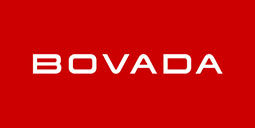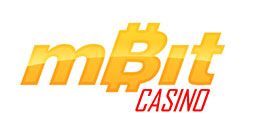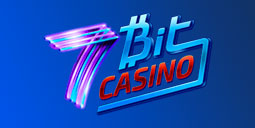My Advice for ICOs?
I did it for free since pro-bono work for your industry. … doing “God’s work” because Marco Santori once commented to me concerning my attempts using Shavers.
Since 2015, folks have asked me what I believe about all sorts of things in the crypto-securities world.
SEC Release 81207 — Report of Investigation Pursuant to 21(a) of the Securities Exchange Act of 1934: The DAO. (*note — the SEC spent nearly two pages discussing SEC v. Glen Turner implemented)
I believe a part of the limit of legitimacy is there are very few markets in existence or over the horizon in which security tokens can be traded, and also utilizing those exchanges means needing to distinguish yourself as an investor.
Since that date, I’ve advised dozens of ICOs on appropriate creation of usefulness and software tokens and am protecting an SEC inquiry to an ICO from this past year.
I simply reply that:
I committed about an hour each week to breaking down ICOs and describing how they violated securities laws or how the provisions and arrangements were scams.
“The government is individual. The government has rules and regulations and unions. The government isn’t comprised of caffeinated coders that work 100 hours 2 weeks whilst flaming newbs at chatrooms. The government has a procedure, which process has to be followed closely.”
I hope to be wrong.
The anonymous nature of crypto also works against compliance.
I went to the air night and began taking calls and having discussions with various luminaries in the bitcoin world. Rhiana came home from the store while I had been on the air and then walked into my tiny home office carrying out a cake.
Released at Sun, 24 Dec 2017 17:00:34 +0000
After working on the SEC v. Shavers instance, I had the chance to talk at several locations, and to consult a great deal of businesses. Each time, I’d calmly explain that first coin offerings, so-called ICOs, were securities offerings.
Cake image via Shutterstock

The answer would vary from outrage into unmeasured vitriol.
The conversation that followed was exactly the exact same one I’ve had with many over the past couple years. They must feel they’ve found the magic trick to go around law and regulation. Occurred is that a dream has haunted many firms I’ve talked with.
I laughed so hard I needed to take a rest. Then I ate cake for the subsequent two hours dwell on the air. I finished the series with my typical closing, “I am not your lawyer, however I might be…”
I-told-you-sos apart, you might be thinking about where ICOs proceed from here.
I presume, as I proposed many times over the past year, if the industry controlled itself, if the exchanges really needed prerequisites for list (other than whether the coin could cover the listing price) — such as some form of diligence and confirmation of legitimacy — we might go in the perfect direction.
I should have sat three or even four panels that weekend on the air, also figured out through a series I can reach more people and provide them the advice they NEEDED — maybe not the advice they wanted. I began using Charlie Shrem and absurd Jason Granger Mainstreet Investment and didn’t return.Counterpoint? CoinDesk is open for remarks as part of our continuing 2017 in Review. Mail news@coindesk.com to discuss your own take.
The leader in blockchain news, CoinDesk tries to offer an open platform for dialog and debate on all things blockchain by supporting given articles. Therefore, the comments expressed in this article are the author’s own and do not necessarily reflect the view of CoinDesk.
Jason Seibert, esq. directs a small law practice focusing on fraud, transactions and fiduciary responsibilities, and sponsor of the “I Am Not Your Lawyer” podcast.
But, in my opinion, as long as there are venues for trading ICO coins, then there’ll be less incentive for the associated projects to utilize a registered and compliant trade.
Difficult to say. I’d like to see valid offerings using the fast and simple systems set up by regulators, but it appears more frequently than not, ICOs wish to skirt law and dare the SEC to come after them. That’s not the best way to go.
For additional information on how you can submit a comment or analysis post, see our Editorial Collaboration Guide or email news@coindesk.com.I remember speaking in Las Vegas at a conference put on by Oracle. My answer was simply, “No. I just don’t want everyone to be surprised when law comes down hard”
As The DAO was contemplated, I remember, specifically, having a telephone call with a notable New York bitcoiner who had been gloating the DAO had solved the Howey Test and regulators were finally from crypto.
On the surface of the cake read, “I’m Sorry I was Right.”
Hear ye, hear ye
Not complete yet
*Sigh.
I disagreed, explained horizontal and vertical commonality, also noted that under several instances, such as my own favorite, SEC v. Glenn Turner, these were securities. There was nothing but bliss on the other end of the telephone.
The following post is an exclusive donation to CoinDesk’s 2017 in Review.
His reply, “Well, they have not achieved anything yet, so they aren’t likely to, right?” “No,” I replied simply.
I’ve worked with customers all around the world. I’ve advised legislators, drafted proposed regulations, spoken with prime ministers and seen countries I frankly didn’t know existed.
My Advice for ICOs? I'm Sorry I Was Right… - July 2025
EXPERTLY REVIEWED
MOBILE FRIENDLY
FAST PAYOUTS
- CasinoRatingBonusVisit Casino
Get your 100% Match Bonus up to $1000!
200% match bonus up to 2000
Up to 5 BTC
Get up to 1 BTC on First Deposit!
Get your 5 BTC Welcome Bonus
Bitcoin Current Price
Top Rated

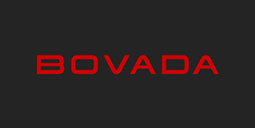


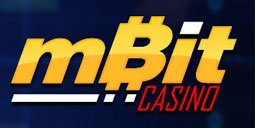
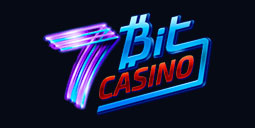
Search
Casino List
- 7bit Casino
- Bovada Casino
- Bitstarz Casino
- Ignition Casino
- Sun Palace Casino
- Aladdin's Gold Casino
- Casumo Casino
- Lucky Red Casino
- Fortunejack Casino
- Mbit Casino
- Mars Casino
- Club World Casinos
- Slotocash Casino
- Drake Casino
- Grand Fortune Casino
- High Noon Casino
- Royal Ace Casino
- Cafe Casino
- Raging Bull Slots
- Oshi Casino
- Betchain Casino
- Casino Extreme
- Vegas Casino.io
- Bitcoin Penguin Casino
- Joe Fortune Casino


